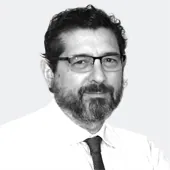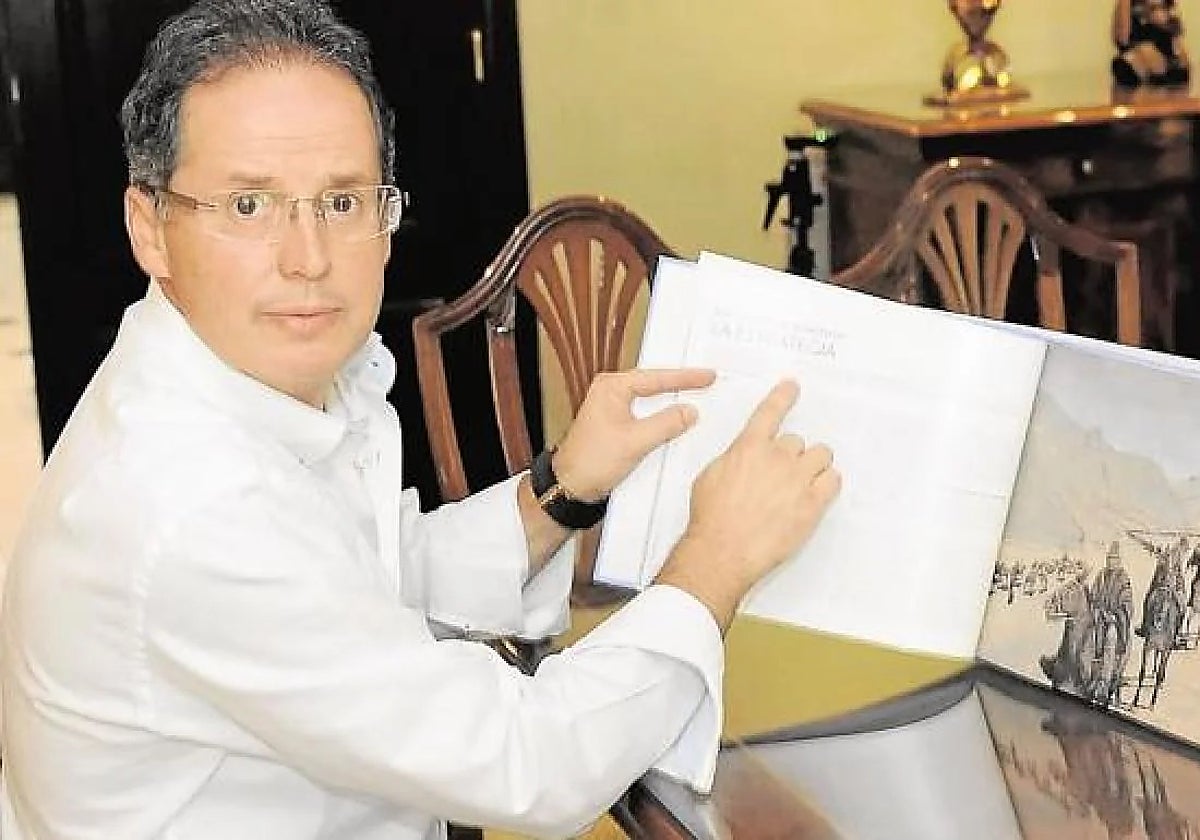Former Marbella councillor wanted in Mayala scandal unsuccessfully attempts to return to Spain
The arrest warrant issued for Carlos Fernández by Interpol is still active, so the Argentinian police detain him every time he shows up at the airport
The former Marbella councillor, Carlos Fernández, who fled Spain in 2006 during the operation Malaya corruption scandal, wants to return to Spain after almost 20 years, half of them spent on the run from justice. Fernández still appears on the international arrest warrant issued by Interpol for the cases he left pending when he fled the country. He has tried to return on more than one occasion and the result has always been the same: every time he shows up at the airport, he ends up detained by the Argentinean police. Once the local authorities verify that the proceedings are time-barred, according to the Argentinean justice system, Fernández is released, but with the impossibility of boarding a flight. This situation, according to reports presented by the former councillor’s defence to the national court, prevents him from returning to Spain. In theory, he no longer has any pending cases, but he remains trapped in a legal limbo.
Fernández, a councillor of Marbella town hall first for GIL and later for the Partido Andalucista, fled in June 2006 when police turned up at his home to arrest him as part of 'Operación Malaya', which uncovered a network of corruption in the then GIL-run town. His whereabouts remained unknown for more than ten years, until, in September 2016, he voluntarily surrendered to the police in the Argentinian province of San Juan, in the west of the country near the border with Chile. He had been living for some time and had raised a family after marrying an Argentinian woman with whom he had two children.
Politicians and military
The former councillor, who had been working for some time as a coach and has provided services to politicians and businessmen in the area, was sent to prison, where he shared a cell with some former Argentinean military personnel serving sentences for crimes against humanity committed during the last dictatorship that the South American country suffered.
Two months later, he was released from prison and, after a long process, the Argentine supreme court ruled in December 2022 to reject the extradition request made by the national court, considering that all the charges for which the Spanish judiciary was seeking him had become time-barred.
In theory, this resolution of the case would open the door to his goal of returning to Spain, the ultimate reason why the ex-politician had decided to turn himself in and to clarify his situation with the Argentinean authorities. However, two and a half years later, he is still stranded in the South American country and cannot even regularise his situation, as he is still undocumented. Although he is married to an Argentinean woman, he is not eligible for Argentinean nationality because he has no documentation.
The former councillor fled to the South American country and was missing for more than a decade
The reason, according to the documents presented by his defence before the court, is that the international arrest warrant issued at the time is still active in the border control systems.
As a result, every time the former fugitive tries to board a plane bound for Spain at an Argentinean airport, alarm bells go off and he is detained by the Argentinean federal police. Once it is confirmed that his legal status in the South American country is in order and that extradition is no longer applicable, he is released. However, he is not allowed to leave the country, "remaining trapped in an administrative loop of detention and release with no effective resolution," according to one of the documents submitted to the national court by his defence team. They argue that the obstacle preventing his return to Spain to regularise his situation is not legal.
Safe conduct
As he does not have any documentation, Fernández goes to the airport with a laissez-passer provided by the Spanish embassy in Buenos Aires, valid only for a specific day, which is issued to him when he buys his ticket, according to what the former councillor explained to SUR.
He has tried several times and each time the outcome has been the same. The arrest warrant code red pops up on the airport computers and he is immediately detained. It usually takes the Argentinean police between 48 and 72 hours to clarify his situation, during which, he is detained.
The defence maintains that, although the Argentine justice system has ruled that extradition is not applicable, Fernández intends to appear voluntarily in Spain and submit to the ongoing proceedings before the national court. However, this situation is preventing him from doing so. For this reason, he has requested that the court provisionally lift the current arrest warrant solely for the purpose of allowing him to travel from Argentina to Spain to speed up his "voluntary appearance".
The national court has already responded to one of these requests and has refused to comply with it, considering that the international warrant issued at the time is not an obstacle for the former councillor to appear if he so wishes.

